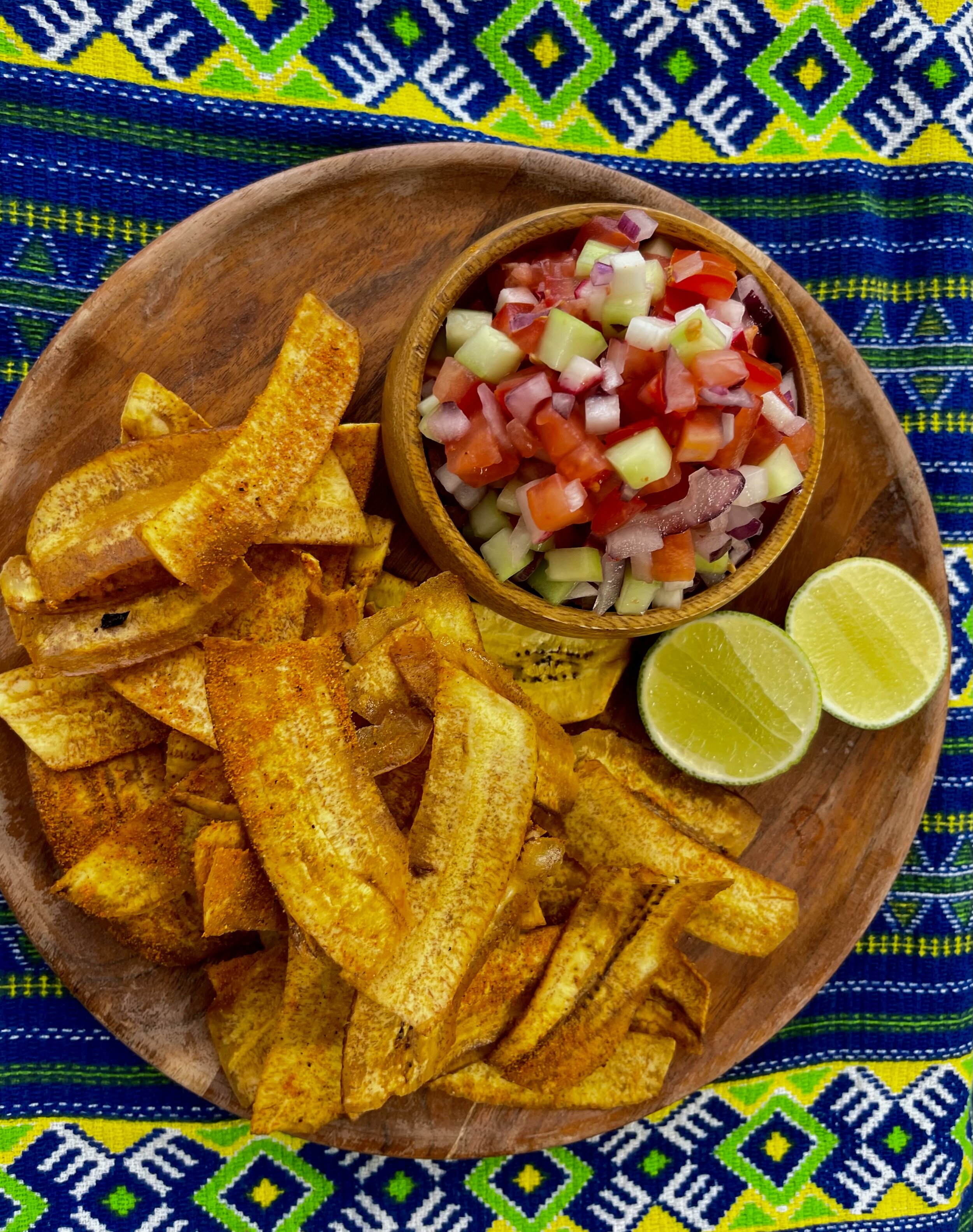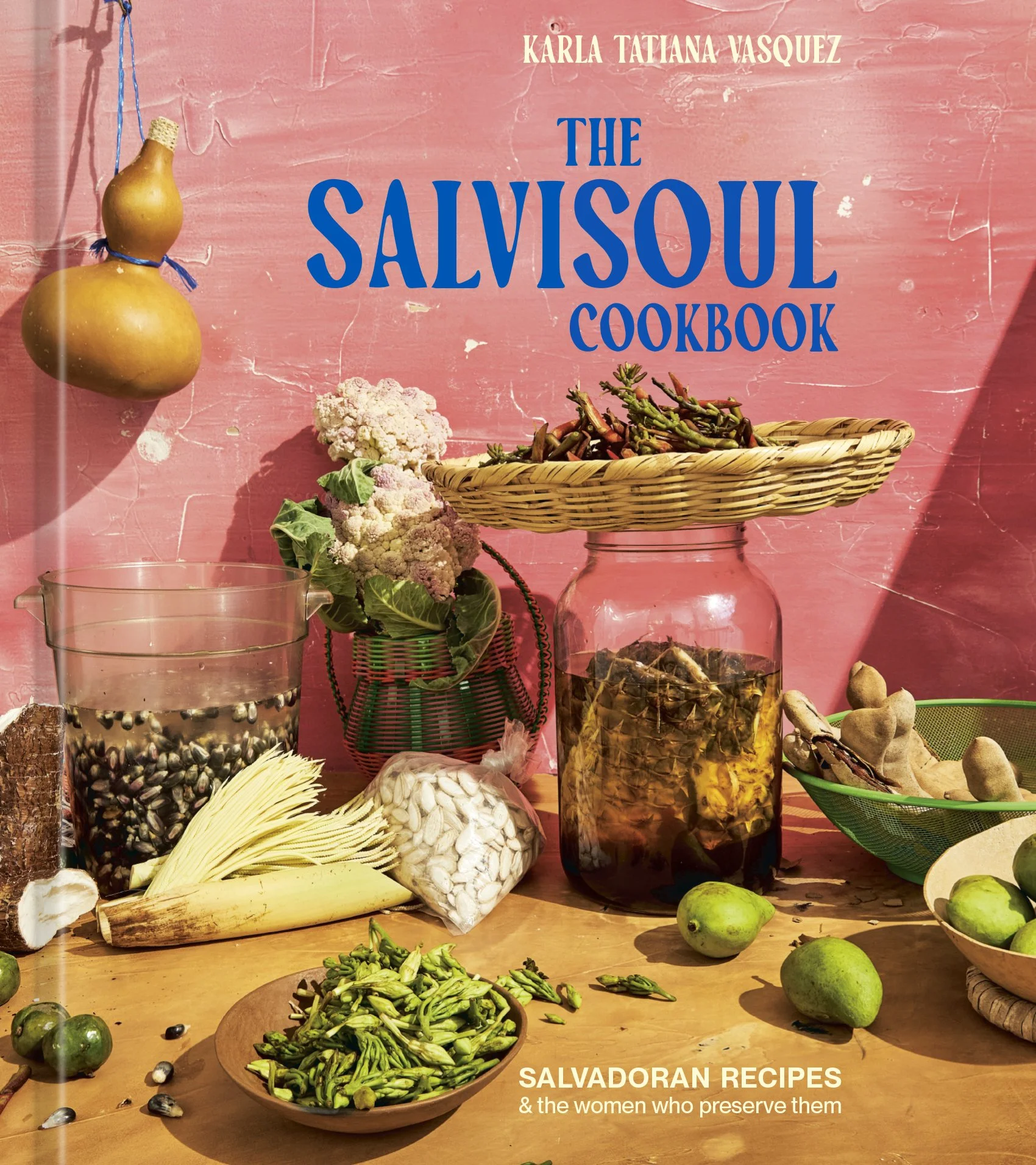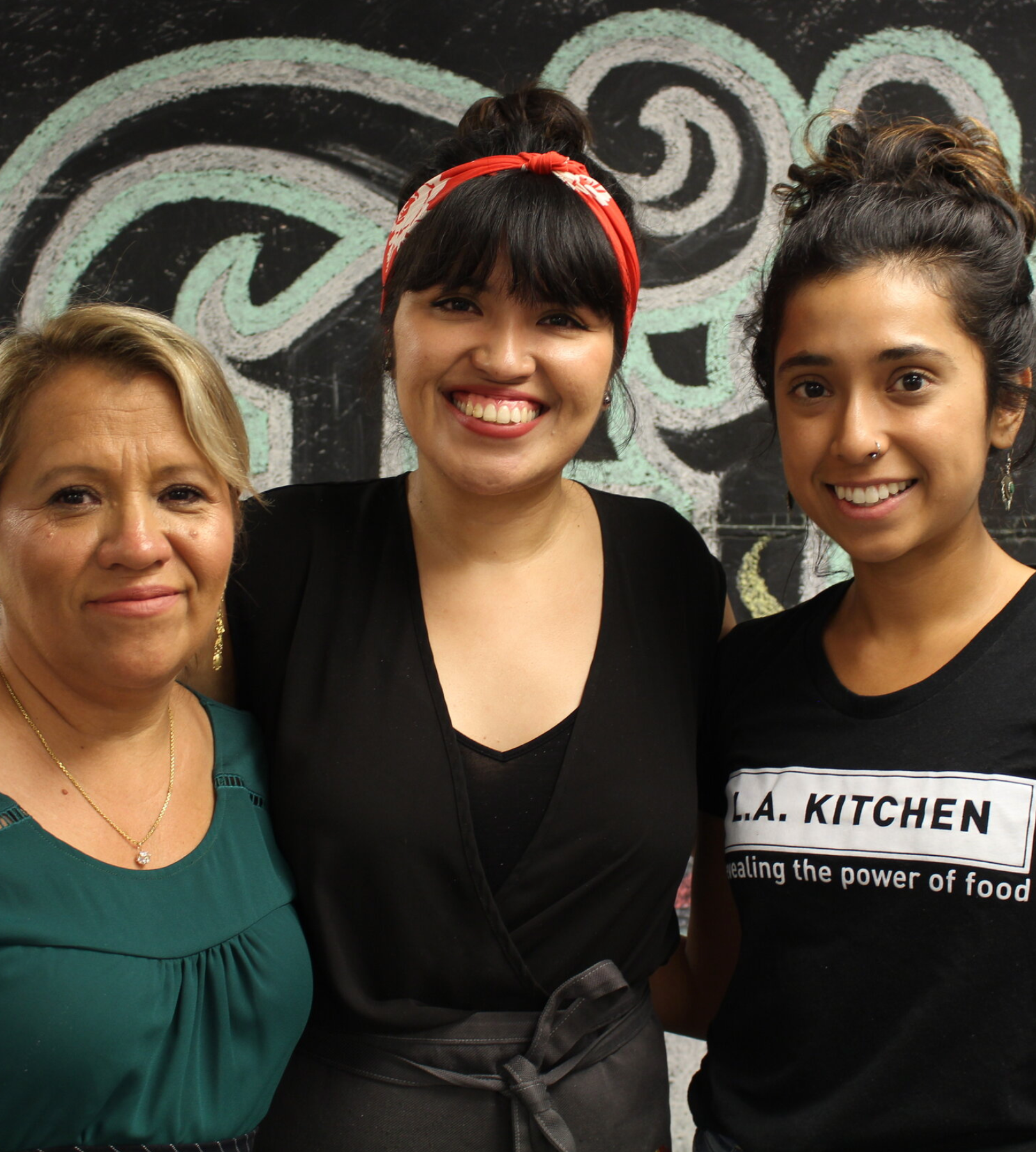
About Us
SalviSoul is a platform for preserving Salvadoran food culture, and sharing Salvadoran women’s stories with the world. SalviSoul brings Salvadoran people into the conversation and allows future generations to continue the tradition of food, family and storytelling around the table.
SalviSoul was founded by 1st gen Salvadoran-American Karla T. Vasquez to bring you the recipes and stories of the Salvadoran diaspora in the United States. Keeping Salvadoran food culture intact and sustained through: a forthcoming cookbook, workshops, cooking classes and community.
The inspiration for SalviSoul was to honor the lives of the women in the family. The idea for SalviSoul was born from the author’s urgency to share her late grandmother’s food and legacy with the rest of the world. From there, Karla realized there was a lack of discussion around Salvi women’s stories.
Donde Come Uno, Comen Dos
Donde come uno, comen dos is a dicho (saying) very popular in Salvadoran culture. It literally means where one eats, two can eat. It’s a radical philosophy that is embedded in Salvadoran food culture. Although Salvadoran families have gone through incredible hardships what constantly pops up in oral storytelling is this radical concept, where one eats, two can eat. A principle informed by the values of care, community, abundance, generousity and justice. In some cases, the saying is edited to fit the story, so for example “donde come 6, comen 7 or donde comen 7, comen 8,” and so on and so forth.
It’s a manifesto of Salvadoran hospitality.
The SalviSoul Recipe
SalviSoul is made up of three special ingredients:
the diaspora
The Food
The Love
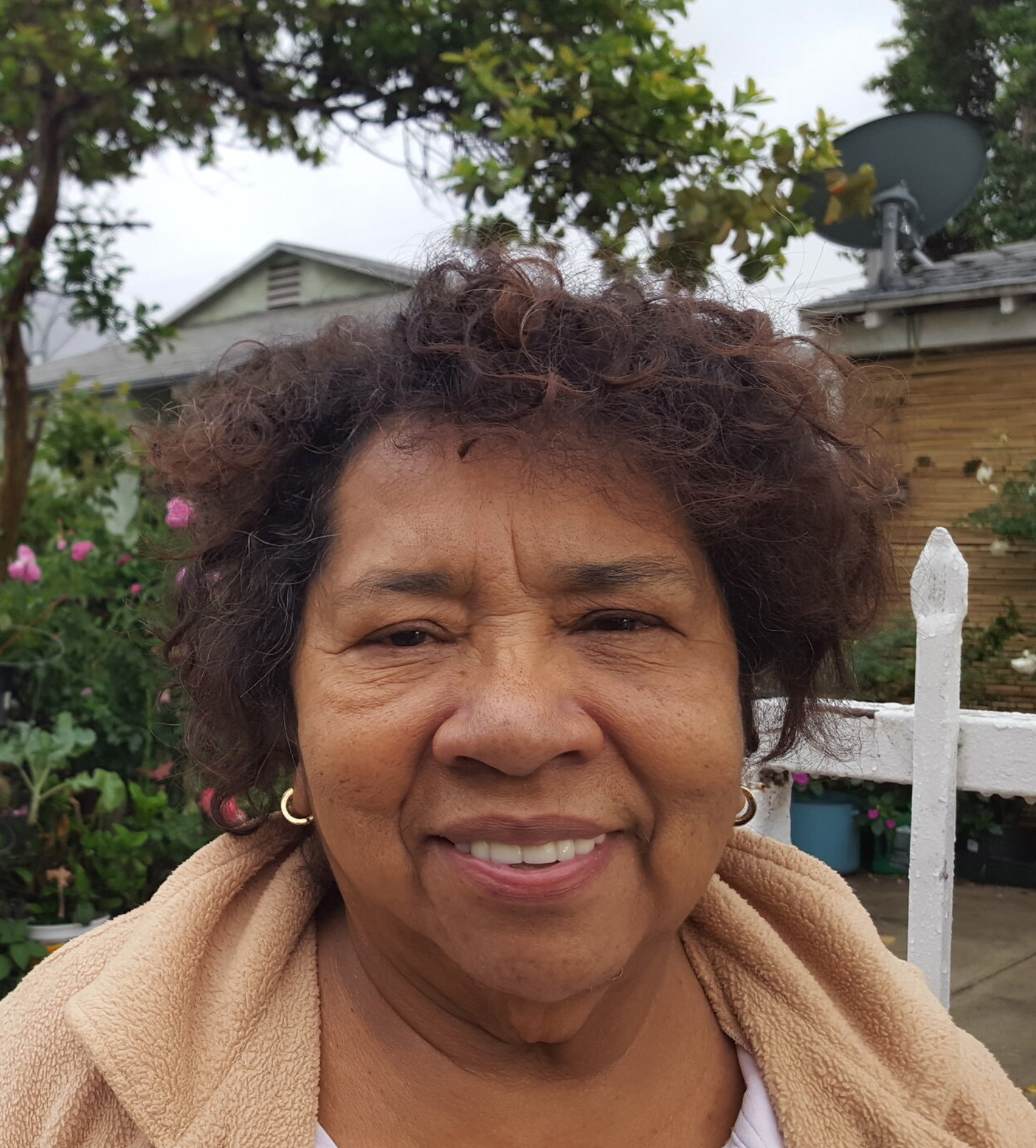
THE DIASPORa
During the 1980s the United States witnessed a large diaspora of Salvadoran immigrants; many of the thousands left and transplanted to the U.S. in search of survival, hope and a new start. Before that time, the Salvadoran population was no larger than 10,000 people.
Due to the political turmoil, the violence and the danger caused in part by the civil war (1980-1992), those who fled and made it safely to the United States stayed and made many U.S. cities like Washington D.C., Chicago, Houston, their home. The largest enclave of Salvadoran people (second only to El Salvador) resides in Los Angeles, Ca.
Through the decades of Salvadoran immigrants, the population has not only increased to more than 2 million but the Salvadoran community has become one of the largest Hispanic groups in the country.
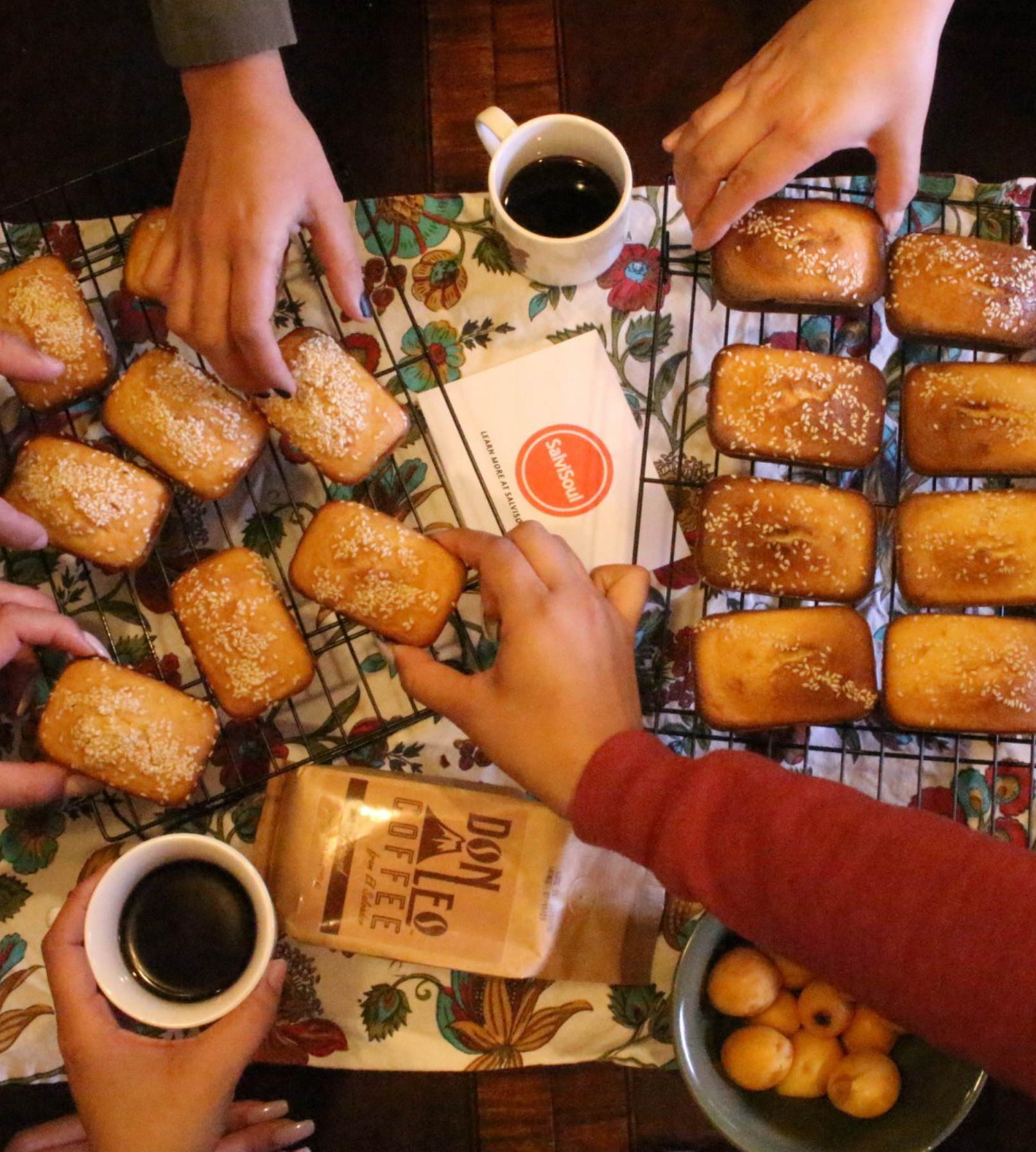
THE FOOD
Though the Salvadoran community makes up a large part of the Latino community in the United States and though there are millions of people who tie their roots to el Pulgarcito, little can be found in the mass market of the culture's culinary contributions.
Many know and love the pupusa due to the popularization of the Salvi staple however there is more to it than that. Since food is the vessel by which identity is formed, to document these food ways guarantees access to the culture and cuisine for many years to come.

THE Love (Note From the Author)
SalviSoul is the manifestation of all the stories, all the culture and all the love that was passed down to me as an immigrant kid trying to figure out identity, place and story.
Growing up, there was hardly ever a time when eating family dinner didn't involve a story about my family's life in El Salvador. Passing the tortillas along with a side of story was what I came to expect and sometimes even dread. I realize now how crucial those moments were in my formation. As the food nourished my physical form, the stories nourished the hungry part of my soul that wanted to understand the land I left as an infant.
All my memories of when I felt "Salvi" was when I was surrounded by my family and food! In those moments, I felt so rich. Eating delicious food and hearing stories of my parents talking about fincas, arboles de mango, and their many adventures in bachillerato. All these things made up my love for my family and Salvi food. SalviSoul is now a way to invite more people to the table and the conversation.

The SalviSoul Cookbook is Here!
In this collection of eighty recipes, Karla shares her conversations with moms, aunts, grandmothers, and friends to preserve their histories so that they do not go unheard. Here are recipes for Rellenos de Papa from Patricia, who remembers the Los Angeles earthquakes of the 1980s for more reasons than just fear; Flor de Izote con Huevos Revueltos, a favorite of Karla's father; as well as variations on the beloved Salvadoran Pupusa, a thick masa tortilla stuffed with different combinations of pork, cheese, and beans. Though their stories vary, the women have a shared experience of what it was like in El Salvador before the war, and what life was like as Salvadoran women surviving in their new home in the United States.
